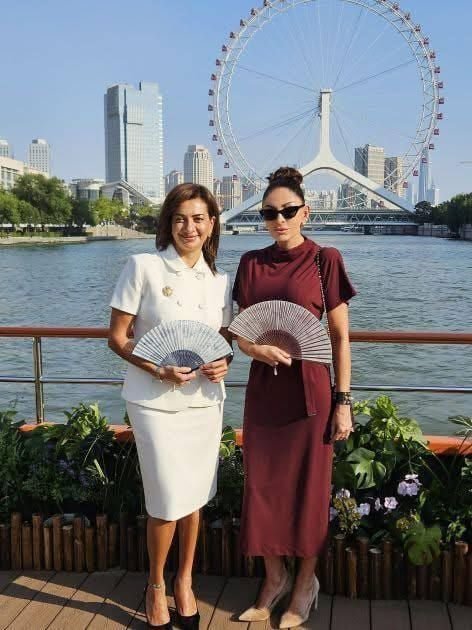TIANJIN — September 1, 2025. Sometimes politics speaks louder through gestures than through words. At the Shanghai Cooperation Organization Plus summit in Tianjin, a single photograph of Mehriban Aliyeva, First Lady of Azerbaijan, and Anna Hakobyan, First Lady of Armenia, standing side by side and smiling with fans in hand against the city’s iconic Ferris wheel, resonated across the South Caucasus.
It was not just a photo. It was a signal — that even after decades of conflict, division, and mistrust, the human dimension of peace is returning.
After Washington, a new tone
The moment comes just weeks after the August 8 Washington Declaration, where Presidents Ilham Aliyev and Nikol Pashinyan, under the auspices of U.S. President Donald Trump, signed a landmark peace agreement. Since then, the atmosphere has shifted: dialogue has replaced silence, and gestures of civility have started to replace the long shadow of enmity.
By meeting publicly and warmly, Aliyeva and Hakobyan offered a glimpse of what normalization can look like: two nations that once shared close cultural and social bonds rediscovering the possibility of being good neighbors again.
Beyond politics: people-to-people trust
For decades, Armenians and Azerbaijanis lived in the same streets, studied in the same universities, and celebrated the same traditions. War tore that apart. The image from Tianjin touches something deeper — the yearning for ordinary coexistence, for children to grow up without the weight of inherited hatred.
Experts note that sustainable peace is not built solely on treaties or corridors, but on restoring trust between societies. When families see the First Ladies meeting with grace and dignity, it sends a message: reconciliation is not an abstraction, but something that can be lived.
Optimism for the South Caucasus
The SCO summit was supposed to be about global geopolitics. Instead, one of its most powerful symbols turned out to be personal. “This photo gives optimism that friendship and neighborliness can return,” said one observer in Baku. In Yerevan, too, voices cautiously welcomed the image, noting how rare such moments have been.
Of course, challenges remain. Peace is fragile, and history cannot be erased overnight. But symbols matter. And in Tianjin, Mehriban Aliyeva and Anna Hakobyan reminded the world — and their own people — that the South Caucasus can aspire to something more than rivalry.
It can aspire to friendship again.


